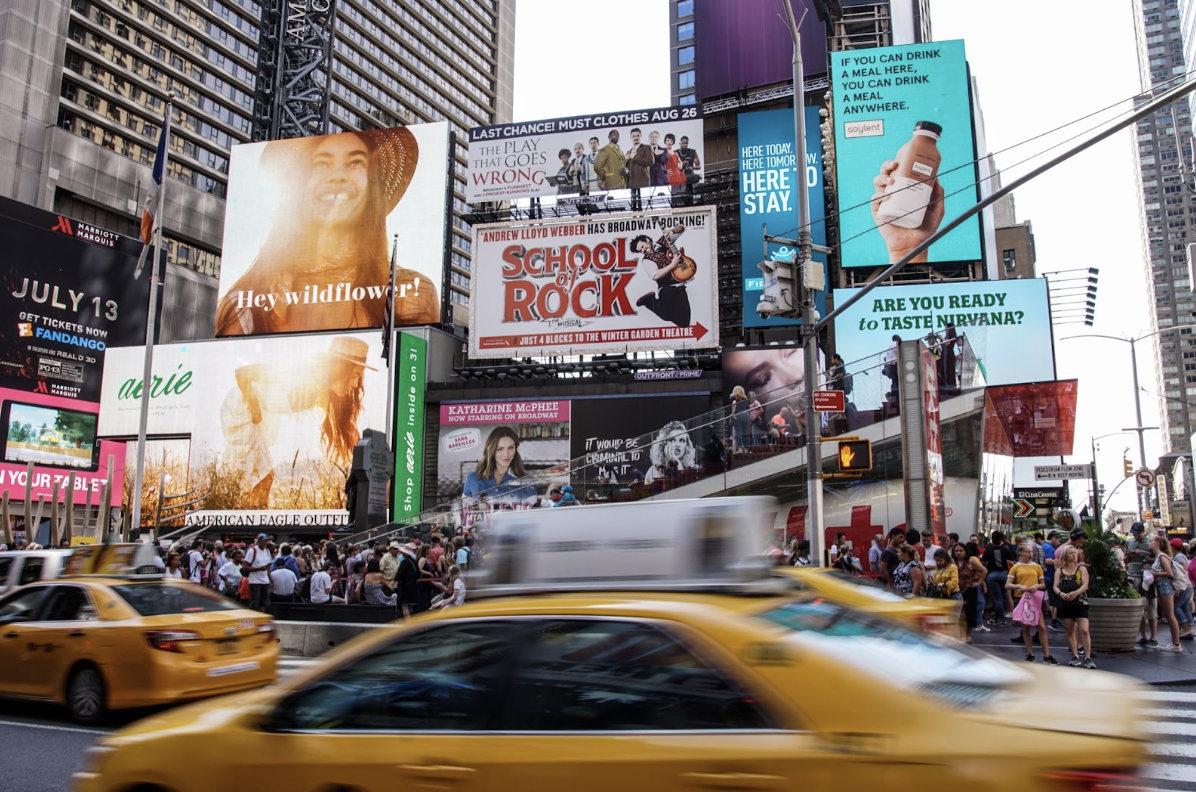The Difference Between PR and Advertising
Aug 3, 2023
If someone asked you to describe public relations what would you say? I know that a year ago I would have stumbled my way through a subpar response. While PR can have various definitions, I have learned that advertising should never be included in a description of PR. Both advertising and PR are business strategies that bring awareness to a brand and its products, but they are not synonymous.
In one of our Slack channels, I noticed a question from a client asking whether MGP creates print advertising. This question prompted me to remember that as a PR firm, MGP focuses on creating well-established, positive reputations for companies through earned media coverage and editorial work. As a PR intern, one of the most important concepts for me to comprehend was the distinction of PR from advertising.
Earned Media versus Paid Media
I recently created a competitive media audit. I used Google to research a client’s competitors and collect their relevant media coverage. A crucial part of this task was distinguishing between earned media and paid media. Relevant media coverage included collecting the company’s earned media coverage and ignoring their paid media.
Earned media and paid media are terms I learned about in depth this past semester in my communication and social media course. Essentially, earned media is what my professor called “word of mouth media” such as social media buzz and news coverage. I then learned that paid media is the content that a brand or company pays to have such as a TV commercial or sponsored content. To simplify: PR = earned media and advertising = paid media.
Therefore PR is?
Here’s the cookie cutter, formal definition of PR from the Public Relations Society of America: “Public relations is a strategic communication process that builds mutually beneficial relationships between organizations and their publics.” So, PR is all about earning eyes, views, likes and attention on a company through strategic decisions. While it might seem “easier” to pay more for paid media than it is to “work” for earned media, oftentimes, PR is more effective than advertising.
I believe that PR and advertising can be equally effective when reaching a younger audience such as myself and other Gen Zer’s. It can also be challenging to decipher whether a piece of media was paid for or earned by a company. However, I find that as a consumer I gravitate towards brands and products that I already know are well-liked by others. In that sense, I feel that PR can be more convincing and personable because it incorporates a third-party endorsement of other consumers who have liked or disliked a product.
In a nutshell, PR seeks to maintain a steady relationship between a brand and consumers. It takes time and energy for a brand to build a great reputation and PR professionals (just like here at MGP!) work hard to achieve this.
While PR and advertising may seem similar, they have significantly different strategies and objectives.
I find it helpful to remind myself of what PR is and aims to achieve as I complete tasks and contribute to client work.
Looking for an efficient and productive PR firm to get the word out about your product or service? Mercury Global Partners is an “all senior” PR firm focused on emerging tech like sustainability, healthcare, AI and more. Get in touch with us at hello@wearemgp.com.

Alyssa Broad
Account Assistant
The Difference Between PR and Advertising
Aug 3, 2023
If someone asked you to describe public relations what would you say? I know that a year ago I would have stumbled my way through a subpar response. While PR can have various definitions, I have learned that advertising should never be included in a description of PR. Both advertising and PR are business strategies that bring awareness to a brand and its products, but they are not synonymous.
In one of our Slack channels, I noticed a question from a client asking whether MGP creates print advertising. This question prompted me to remember that as a PR firm, MGP focuses on creating well-established, positive reputations for companies through earned media coverage and editorial work. As a PR intern, one of the most important concepts for me to comprehend was the distinction of PR from advertising.
Earned Media versus Paid Media
I recently created a competitive media audit. I used Google to research a client’s competitors and collect their relevant media coverage. A crucial part of this task was distinguishing between earned media and paid media. Relevant media coverage included collecting the company’s earned media coverage and ignoring their paid media.
Earned media and paid media are terms I learned about in depth this past semester in my communication and social media course. Essentially, earned media is what my professor called “word of mouth media” such as social media buzz and news coverage. I then learned that paid media is the content that a brand or company pays to have such as a TV commercial or sponsored content. To simplify: PR = earned media and advertising = paid media.
Therefore PR is?
Here’s the cookie cutter, formal definition of PR from the Public Relations Society of America: “Public relations is a strategic communication process that builds mutually beneficial relationships between organizations and their publics.” So, PR is all about earning eyes, views, likes and attention on a company through strategic decisions. While it might seem “easier” to pay more for paid media than it is to “work” for earned media, oftentimes, PR is more effective than advertising.
I believe that PR and advertising can be equally effective when reaching a younger audience such as myself and other Gen Zer’s. It can also be challenging to decipher whether a piece of media was paid for or earned by a company. However, I find that as a consumer I gravitate towards brands and products that I already know are well-liked by others. In that sense, I feel that PR can be more convincing and personable because it incorporates a third-party endorsement of other consumers who have liked or disliked a product.
In a nutshell, PR seeks to maintain a steady relationship between a brand and consumers. It takes time and energy for a brand to build a great reputation and PR professionals (just like here at MGP!) work hard to achieve this.
While PR and advertising may seem similar, they have significantly different strategies and objectives.
I find it helpful to remind myself of what PR is and aims to achieve as I complete tasks and contribute to client work.
Looking for an efficient and productive PR firm to get the word out about your product or service? Mercury Global Partners is an “all senior” PR firm focused on emerging tech like sustainability, healthcare, AI and more. Get in touch with us at hello@wearemgp.com.

















